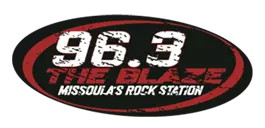
Viewpoint: Holland Lake bull trout need clean water
Arlene Montgomery
Bull trout in Holland Lake are unique yet vulnerable. Holland Lake harbors a "disjunct" core area population of bull trout meaning that bull trout spawn in Holland Creek and mature in Holland Lake rather than migrating to Swan Lake like most bull trout in the Swan watershed.
In 2010, the US Fish and Wildlife Service designated the Holland Lake core area as critical habitat because it contains the features essential for bull trout conservation. They have very specific habitat requirements such as clean water with very little fine sediment in the stream bottom so oxygen can flow to the incubating eggs. They need the coldest water of all salmonids so if water temperatures rise above 59o F it creates a thermal barrier that restricts migration and use of available habitats.
Complex streams with intact riparian vegetation provide shade, woody debris, bank stability and deep pools. Connected watersheds allow fish to migrate from the spawning streams to the lake and back -- they make this journey many times in their life.
The Endangered Species Act does not allow critical habitat to be adversely modified. The discovery by diligent citizens of the sewage pond leaking into groundwater and Holland Lake poses a threat to clean water and the aquatic ecosystem. Increased nutrients lead to algae growth which leads to oxygen deficiency and negative impacts to fish, amphibians, insects and other aquatic life.
This is an adverse modification of bull trout critical habitat. It has been documented that the Forest Service is responsible for the sewage treatment for the campground and Holland Lake Lodge, but rather than rushing to replace or expand it the Flathead National Forest should look at alternatives that would be beneficial to the water quality and critical habitat in Holland Lake.
The Forest Service sewage treatment is for the dump station, campground, and Holland Lake Lodge. Is it necessary for the campground to have a dump station since many on the Flathead do not and a private entity could provide such a service in Seeley Lake or elsewhere? Perhaps an alternative is using composting toilets at the campground and Lodge (the cabins, barn and outbuildings are dilapidated so what shape is the plumbing in?) Others have suggested putting the Lodge into public ownership.
Asking the public for input on viable alternatives to prevent pollution in Holland Lake would likely generate ideas and suggestions that could be developed in an environmental analysis.
Bull trout are in a precarious situation in the Swan Valley, non-native lake trout and mysis shrimp pose a threat in Holland Lake. Lack of clean water shouldn't be another hazard they have to navigate.
Arlene Montgomery Program Director, Friends of the Wild Swan

